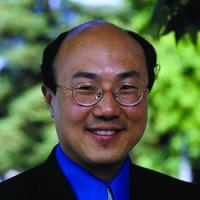
*To receive email announcements and live stream information for upcoming seminars, please subscribe to the SystemX Seminar/EE310 Mailing list here.
NOTE: Recording and slides will NOT be available after the talk
(Co-sponsored by the IEEE Solid-State Circuits Society and the Electron Devices Society)
The discovery of the transistor, followed by its invention, sits almost exactly midway between Ferdinand Braun's discovery of solid-state rectification in 1874 and today's gigascale ICs. As with other epoch-shattering inventions, the story of the transistor isn't quite as neatly linear as typical textbook summaries suggest. Retracing some of the steps of the pioneers generates important insights into the nature of innovation, as well as a much deeper appreciation of the role of "chance favoring the prepared mind". And as the end of lithographic scaling puts us on the threshold of a major technological discontinuity, it is helpful to study the story of previous ones to identify what possibly lies ahead.
Thomas Lee received his degrees from MIT, where his 1989 thesis described the first CMOS radio. He established the Stanford Microwave Integrated Circuits Laboratory in 1994, after having worked at Analog Devices, Rambus and other companies. He's designed PLLs for several microprocessors, and founded Matrix Semiconductor, among others. He is a Ho-Am (Samsung) Prize laureate, an IEEE and Packard Fellow, has won CICC and ISSCC "Best Paper" awards, an Honoris Causa doctorate from U. of Waterloo (2013), the 2021 IEEE Gustav Kirchhoff award, and a U.S. Secretary of Defense Medal (2012) for his work as Director of DARPA's MTO. He was a Director at Xilinx up to its acquisition by AMD in 2022. He owns thousands of vacuum tubes, hundreds of oscilloscopes, and countless obsolete semiconductors. No one, including himself, quite knows why.


